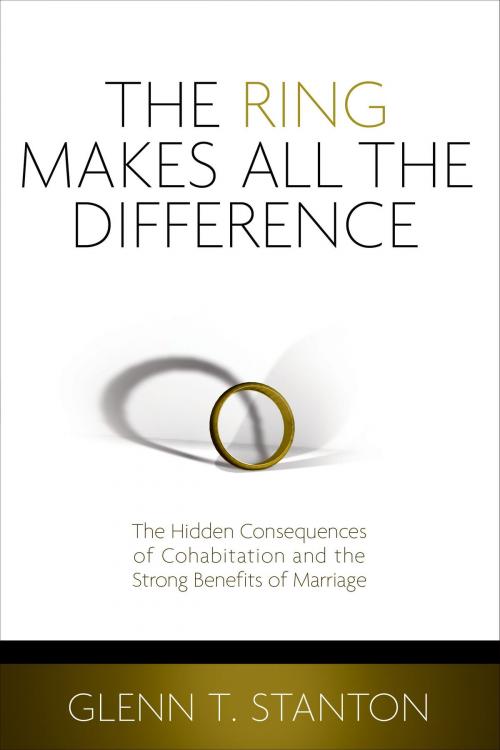The Ring Makes All the Difference
The Hidden Consequences of Cohabitation and the Strong Benefits of Marriage
Nonfiction, Religion & Spirituality, Christianity, Christian Life| Author: | Glenn T. Stanton | ISBN: | 9780802478078 |
| Publisher: | Moody Publishers | Publication: | August 19, 2011 |
| Imprint: | Moody Publishers | Language: | English |
| Author: | Glenn T. Stanton |
| ISBN: | 9780802478078 |
| Publisher: | Moody Publishers |
| Publication: | August 19, 2011 |
| Imprint: | Moody Publishers |
| Language: | English |
Cohabitation is hands-down the fastest growing family form in the United States and most Western nations. Most of these couples view the arrangement as a step toward marriage, or as a substitute for marriage. But does living together truly give people what they are longing for? Author Glenn Stanton offers a compelling factual case that nearly every area of health and happiness is increased by marriage and decreased by cohabitation.
How can young couples determine if moving in together is a wise move? With more than half of American women now cohabitating sometime in their adult lives, pastors and counselors need to be prepared to advise young adults with factual and scriptural truth. With credible data and compassion, Stanton explores the reasons why the cohabitation trend is growing; outlines its negative outcomes for men, women and children; and makes a case for why marriage is still the best arrangement for the flourishing of couples and society.
Cohabitation is hands-down the fastest growing family form in the United States and most Western nations. Most of these couples view the arrangement as a step toward marriage, or as a substitute for marriage. But does living together truly give people what they are longing for? Author Glenn Stanton offers a compelling factual case that nearly every area of health and happiness is increased by marriage and decreased by cohabitation.
How can young couples determine if moving in together is a wise move? With more than half of American women now cohabitating sometime in their adult lives, pastors and counselors need to be prepared to advise young adults with factual and scriptural truth. With credible data and compassion, Stanton explores the reasons why the cohabitation trend is growing; outlines its negative outcomes for men, women and children; and makes a case for why marriage is still the best arrangement for the flourishing of couples and society.















